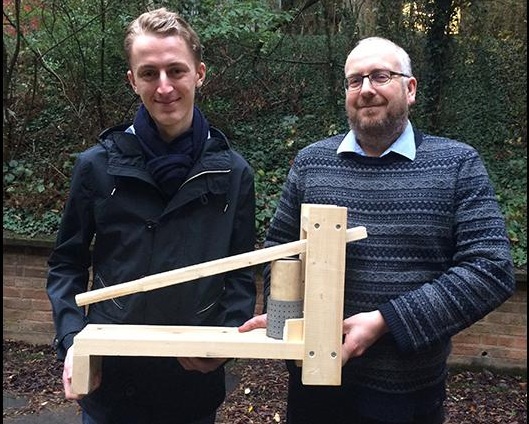Wednesday, 25/02/2026 | 04:53 GMT+7
A simple device developed by Loughborough University engineers will give access to cleaner and cheap renewable energy to India’s poor.
The device, a wooden briquette-maker, enables Indian women to make use of paper waste, sawdust and ash, to create biomass briquettes that can be used for heating instead of the more polluting charcoal or wood.
The project is a partnership between Loughborough University, the Russ Foundation, working with disadvantaged women in south India, and the MyIndia enterprise, which aims to tackle fuel poverty in the region.

“MyIndia is an excellent example of a project which is making a real difference to people’s lives,” said Richard Blanchard, Lecturer in Renewable Energy at the Centre for Renewable Energy Systems Technology at Loughborough University, who developed the technology together with chemical engineering student Matthew Palmer.
“Matthew initially asked me to help out and make a wooden prototype briquette press which could be easily replicated by the Russ Foundation. On my part I’m sharing knowledge and expertise to help people in poverty make a better life for themselves and their families and ultimately be a part of a project that they can take ownership of – this is what it’s all about.”
A metal version of the prototype press has since been made and installed at the charity to allow the women to create low-cost biomass briquettes, earn a wage and gain vocational skills.
The project received £1,500 of funding through the Santander 60 Second Pitch competition after one of the team members posted a 60 second video about the benefits of biomass briquettes.
In India, approximately one million people die annually from respiratory diseases due to household air pollution caused by smoke and fumes from burning firewood and charcoal in an open fire or simple stove with incomplete combustion.
“This project demonstrates the power of collaboration and I hope it inspires other student engineers to take up opportunities outside their degree and get involved with projects such as MyIndia,” said Matthew Palmer. “This is also a great example of students and lecturers working together to share simple engineering knowledge overseas.”
E&T








 Consultation on the methodology for developing and updating energy consumption standards for four major industrial sectors
Consultation on the methodology for developing and updating energy consumption standards for four major industrial sectors
 Opening of the 2025 Energy-Efficient Equipment and Green Transition Exhibition Fair
Opening of the 2025 Energy-Efficient Equipment and Green Transition Exhibition Fair
 Energy-saving solutions and green transition promotion
Energy-saving solutions and green transition promotion
 The 9th VEPG Steering Committee Meeting: Strengthening Coordination for Viet Nam’s Just Energy Transition
The 9th VEPG Steering Committee Meeting: Strengthening Coordination for Viet Nam’s Just Energy Transition